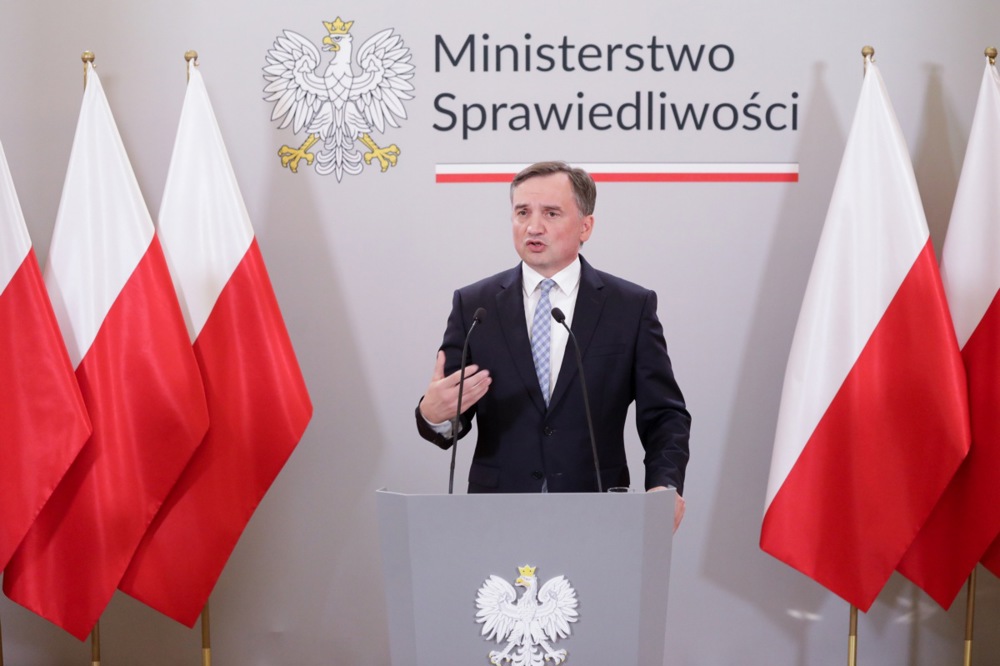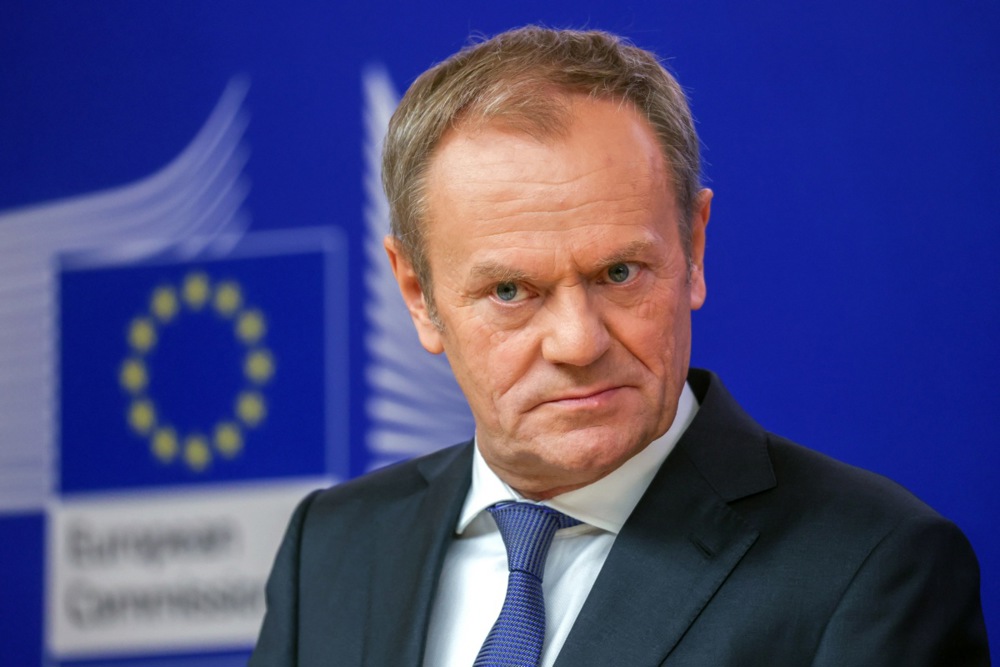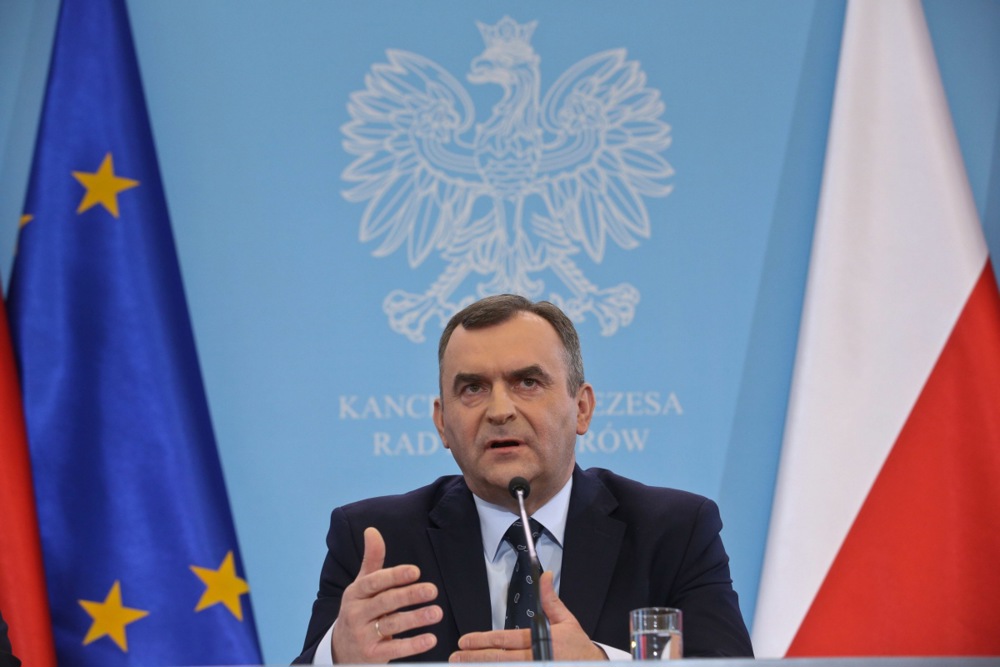Donald Tusk, who is set to officially become Poland’s Prime Minister in a few days, has unveiled the Cabinet that will serve under him.
He seems to have prioritised those with whom he has worked in his previous government, which ran from 2007 to 2014.
Tusk, the leader of the Civic Coalition (KO), is the choice of the four-party coalition comprising the KO, the Polish People’s Party (PSL), Poland 2050 and the Left, who together secured a majority in the new Polish Parliament.
President Andrzej Duda had handed the first rights to form a government to outgoing Prime Minister Mateusz Morawiecki, head of the Law and Justice party, the largest in Parliament.
His mission is doomed to fail as the Conservative PiS, which backs him, have failed to attract any coalition partners and he will thus lose a vote of confidence taking place on December 11.
Parliament will then proceed to install Tusk as Prime Minister on the same day and he will present his programme for his Government and Cabinet on 12 December before taking the oath of office in the Presidential Palace on December 13 or 14.
Tusk met the members of his Government-in-waiting on December 8 to prepare for the process. It has now been confirmed that his Cabinet will have 26 members: 15 from the KO, four each from the Left party and PSL and three from Poland 2050.
Six of the new Cabinet are ministers who served in the last Tusk government from 2007, with the highest-profile returns being those of Radosław Sikorski as foreign minister and the leader of the PSL Władysław Kosiniak-Kamysz as Deputy Prime Minister and defence minister.
Sikorski served as foreign minister throughout Tusk’s term in office and has since been Speaker of Parliament (2014-2015) and an MEP since 2019.
His nomination has raised eyebrows because during his previous stint with Tusk he had a stormy relationship with then-president Lech Kaczyński. Sikorski is well known for his controversial statements on social media that some commentators have argued are unbecoming of a top diplomat.
The former and future minister also has an interesting backstory in that he won a scholarship to Oxford when a schoolboy in Poland. After completing his studies there he went to Afghanistan as a journalist before returning to Poland following the fall of the Berlin Wall in 1989.
In the 1990s, Sikorski entered politics as a staunch anti-Communist and Conservative, going on to be installed as defence minister in the first PiS government (2005-2006). In 2007, he then transferred his allegiances to the Liberal PO, becoming Tusk’s foreign minister in the same year.
It is likely Tusk has selected Sikorski because he knows the foreign ministry and its workings well.
He is also likely to be a positive element in relation to operating with the PiS and its support of Duda; the two men instinctively share a preference for Poland to build alliances in the West of the EU rather than in Central and Eastern Europe or with the US.
The incoming Prime Minister also works well with Kosiniak-Kamysz as in the last Tusk administration the current PSL leader was minister for labour and loyally pushed through difficult reforms around raising the age of retirement.
Tusk is also bringing back Bartłomiej Sienkiewicz, who was interior minister in his last government and who this time will receive the minister of culture portfolio. He will be charged with the tricky task of ending PiS domination of public media.
Another former minister of the interior and minister of defence who returns, this time as minister for security services, is Tomasz Semioniak. He will be charged with disbanding the controversial Polish anti-corruption agency CBA, which Tusk believes is a hotbed of PiS functionaries.
Borys Budka, another close Tusk ally and former leader of the Civic Platform (PO), the dominant party in the KO, served in the last Tusk government as justice minister. He is now set to return as head of the ministry of state assets, which will be responsible for a major clear-out of PiS nominees in State companies.
The justice portfolio in the new Tusk Government goes to former Ombudsman and current KO Senator Adam Bodnar. He will be tasked with attempting to remove PiS nominees to the National Judicial Council, the Constitutional Court and the Supreme Court in such a way as does not open up the new regime to charges of acting unconstitutionally.
Important posts of minister of interior and minister of finance have also gone to trusted Tusk allies, the general secretary of the PO Marcin Kierwinński (interior) and the KO’s chief economic adviser Andrzej Domański (finance).
One of the nominees from the Poland 2050 party, Paulina Henning-Kloska, came within a whisker of being deselected in the past two weeks as she was the “face” of legislation the new majority introduced. That brought in the controversial loosening of regulations governing the construction of wind farms, which to many looked to have been the work of pro-wind farm lobbyists.
Still, the controversial elements of that legislation have now been withdrawn and Henning-Kloska has been given a second chance.
After holding a meeting with his Cabinet-in-waiting, Tusk told reporters the new Government was fully prepared, criticising the outgoing establishment for continuing to take decisions he alleged they have no mandate for.
He said a “difficult period was now coming to an end” and gave assurances that the State budget for 2024 would be able to meet the costs of raising public-sector pay.
Alongside that, he pledged to raise universal child benefit by 60 per cent, as the outgoing regime had legislated for.
He did acknowledge that promises such as doubling the threshold at which income tax is paid and zero per cent-rated mortgages for first-time buyers, which his party had also pledged, were unlikely to be implemented next year.
Tusk will attend a major EU summit in Brussels, set for December 14-15, at which European Union support for Ukraine will be a primary topic.
At the same gathering, he will almost definitely not back European Parliament proposals to change EU rules to remove Member States’ right of veto.





